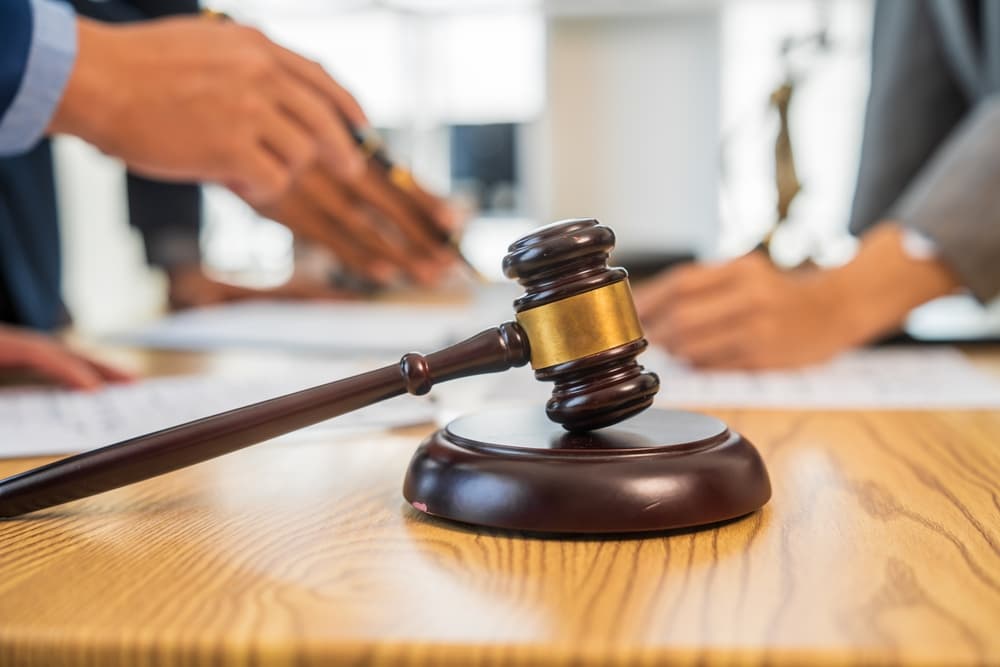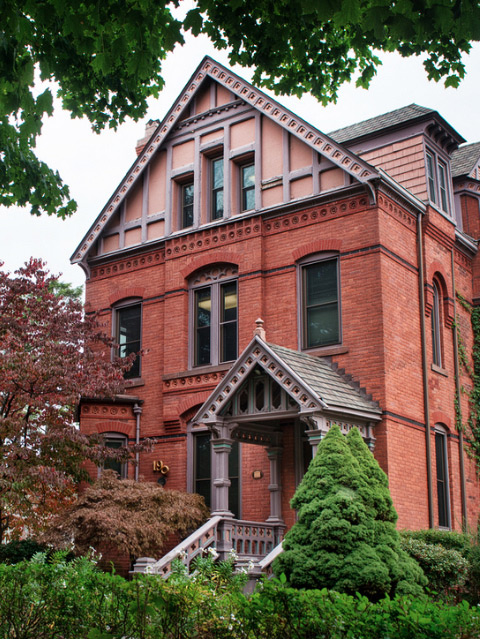Connecticut has laws that protect residents of nursing homes from abuse and neglect. Unfortunately, these laws don't stop predators from taking advantage of this vulnerable population.
More challenging is proving that the nursing home staff or facility is responsible for the abuse or neglect.
We at Flood Law Firm strive to make it as easy as possible for victims and their families to prove nursing home negligence in Connecticut.
Our goal with this learning resource is to offer insights into how to prove these atrocious acts occurred and what steps to take with the help of our nursing home abuse attorneys.
Nursing Home Abuse and Negligence Statistics

It is estimated that 1 in 10 nursing home residents are victims of abuse in the United States. In Connecticut specifically, there are thousands of cases reported each year, yet only a fraction are investigated, with even fewer leading to criminal charges or litigation.
Moreover, the rate of nursing home abuse and negligence is on the rise in many states, including Connecticut. Between 2011 and 2017 the number of incidents more than doubled, and studies show a 29 percent increase in the years since.
These alarming statistics highlight the need for families to not only be aware of the potential for abuse and neglect in nursing homes but also understand how to prove it and take legal action when necessary.
What is Considered Nursing Home Negligence in Connecticut?
Connecticut law defines negligence in nursing homes as elder abuse that results in physical, emotional, or financial harm to a resident.
This can include:
- Failure to provide adequate medical care
- Failure to maintain a safe and clean living environment
- Failure to prevent falls and injuries
- Neglecting basic needs such as food, water, and personal hygiene
- Not addressing or reporting signs of abuse or neglect from other residents or staff members
- Intentionally causing harm or neglecting the resident's health and well-being
- Not allowing residents to have visitors or restrict their communication with family and friends
- Financial exploitation, such as stealing money or property from the resident
These negligent acts put residents at risk for serious injuries, illnesses, and even death.
If you suspect that your loved one was a victim of any type of negligence in their assisted living or retirement community, consult a personal injury lawyer to determine the best course of action.
What Are the Signs of Nursing Home Neglect and Abuse?
The key to proving nursing home abuse or negligence is understanding the signs and recognizing when something is not right.
Common signs include but are not limited to:
- Unexplained injuries such as bruises, fractures, burns, and cuts: Common in abusive and neglectful situations, these injuries may result from physical abuse or failure to provide proper care and supervision.
- Sudden changes in behavior: If your loved one becomes withdrawn, anxious, depressed, or shows signs of fear towards certain staff members or other residents, it could indicate emotional or psychological abuse.
- Poor hygiene and nutrition: Neglecting basic needs such as bathing, grooming, and feeding can lead to serious health issues. Pay attention to any sudden weight loss or signs of malnutrition.
- Bedsores: Also known as pressure ulcers, these are a common sign of neglect in bedridden patients who are not turned regularly or provided with adequate support and care.
- Unsanitary living conditions: If the facility is dirty, has foul odors, or is not properly maintained, it can be a sign of neglect and lack of proper care for residents.
- Diminished communication and restricted visitation: If the nursing home staff limits or denies your access to your loved one, it could be a red flag for potential abuse or neglect.
- Strange or sudden financial transactions: If your loved one's financial accounts show unexplained withdrawals or beneficiary changes, it could be a sign of financial exploitation.
Document any changes in your loved one's behavior, health, or living conditions to determine whether these signs indicate negligence. This evidence can be crucial when presenting a case against the nursing home.
What Evidence Do I Need To Prove Nursing Home Negligence?
Documentation
One of the most compelling forms of evidence when proving nursing home negligence is documentation, which can include:
- Medical records: These can provide insight into the resident's condition, any injuries or illnesses, and the care they have received.
- Incident reports: If an incident occurred and was reported by staff, there should be a written record of it. This can be crucial in proving that abuse or neglect has occurred.
- Photographs or videos: Visual evidence of injuries or unsanitary living conditions can support your case.
- Financial records: Any changes to your loved one's financial accounts can help prove financial exploitation.
- Surveillance footage: If the facility has surveillance cameras, footage can be used to show any abusive or neglectful behavior by staff members.
Some of this documentation isn't always easy to procure on your own, especially when dealing with a nursing home that may not be cooperative.
This is where an experienced nursing home abuse and negligence attorney can help gather evidence and build a strong case for compensation.
Eyewitness Testimony
Eyewitness accounts bolster the credibility of your case and can provide firsthand accounts of abuse or neglect.
Witnesses you should consider speaking to for an accurate and detailed account include:
- Your loved one's roommates or other residents
- Visiting family members and friends
- Nurses, aids, and other staff members who may know about the situation
- Local authorities who have responded to previous incidents at the facility
- Other healthcare providers who have treated your loved one and can attest to their condition
With eyewitnesses validating your negligence claim, the chances of receiving compensation and justice for your loved one increase significantly.
Demonstrate the Breach of Duty of Care
One of the key elements of proving nursing home negligence is demonstrating that the facility breached its duty of care towards your loved one.
Essentially, this means that the facility failed to provide the level of care and safety that is expected in a nursing home setting. This can be proven by showing evidence such as:
- Failure to follow established protocols and procedures
- Inadequate training or staffing levels
- Violations of state regulations
- History of complaints or citations against the facility
By providing this evidence, you can show that the facility was negligent in its duties, putting your loved one at risk for harm.
Show Direct Causation
Proving that the nursing home was negligent is not always enough to receive compensation. You must also show that this negligence directly harmed or injured your loved one.
This type of evidence varies depending on the type of negligence that occurred, but it can include:
- Medical records showing a decline in health after a specific incident or event
- Testimony from medical experts linking the injuries to neglectful care
- Statements from your loved one detailing their experiences and how they have been affected by the negligence
Establishing direct causation can help you hold the nursing home accountable for its actions and seek justice for your loved one.
How Much is a Nursing Home Negligence Personal Injury Case Worth?
Recoverable compensation for nursing home abuse or neglect varies depending on the specific circumstances of each case.
Factors that may affect the value of your case include:
- Level of intent: If abuse was intentional rather than unintentional negligence, you may be entitled to higher compensation.
- Severity of injuries: The more severe the injuries and their impact on your loved one's life, the higher the potential value of your case.
- Duration of neglect: If the neglect has been ongoing for a long period, this can lead to increased damages.
- State laws: Each state has different laws and regulations regarding nursing home negligence, which can impact the amount of compensation you are eligible to receive.
While there is no set standard for settlements or verdicts, successful cases typically see compensation for economic and non-economic damages, such as:
- Medical expenses: Settlement awards typically include the cost of medical treatment for injuries caused by neglect. This includes any medical bills already paid as well as future medical costs resulting from the long-term effects of negligence or abuse.
- Pain and suffering: Emotional distress, physical pain, or loss of enjoyment of life, may also be included in a settlement. These non-economic damages are harder to quantify, but an experienced attorney can help negotiate a fair amount based on the severity and impact of the neglect.
- On-going care and support: If your loved one has suffered long-term or permanent harm due to negligence, you may be entitled to compensation for future care and support they will require, including home modifications, medical devices, and counseling.
- Out-of-pocket expenses: This can include any costs related to the neglect, such as transportation expenses for medical appointments or costs associated with moving to a new facility.
Ultimately, understanding what compensation you or your loved one may be entitled to requires a thorough evaluation of the facts and circumstances of your case.
An experienced nursing home abuse and negligence attorney can help you determine the potential value of your case and fight for the compensation you deserve.
What Should I Do If I Suspect Nursing Home Abuse or Negligence?
Talk to your loved one.
Start by talking to your loved one about their perspective on the care they are receiving. Listen carefully to their concerns and ask for specific examples of any abuse or neglect they may have experienced. Validate your loved one's feelings and take them seriously.
File a report with the appropriate authorities.
If your loved one's safety is in immediate danger, call 911 or contact local law enforcement.
Otherwise, you can file a report with the state's adult protective services agency or long-term care ombudsman. These agencies investigate allegations of abuse and neglect and can take actions to protect your loved one from harm.
Inform the facility of your concerns.
Ask your lawyer to inform the facility of any concerns or suspicions you have regarding their care. This can prompt them to take action and improve the quality of care for all residents. Additionally, it creates a paper trail that your lawyer can use as evidence in case they fail to address the issue.
Consult a personal injury lawyer.
No matter the extent of negligence, its lasting effects on your loved one's well-being are unacceptable. An experienced attorney can explain your legal options and ensure that your loved one receives the justice and compensation they deserve.
Prove Negligence and Recover Maximum Compensation With the Help of a Nursing Home Abuse and Negligence Lawyer From The Flood Law Firm

It is devastating to discover that your loved one has been a victim of nursing home abuse or neglect in Connecticut.
At The Flood Law Firm, we understand the emotional toll this can take on you and your family, and our experienced personal injury lawyers are here to help you seek justice for your loved one.
Our process begins with a comprehensive evaluation of your case to determine if negligence played a role in your loved one's injuries.
We will then help gather evidence, consult with medical experts, and calculate the potential value of your case.
Contact our personal injury law firm online or at (860) 346-2695 now to learn more about how our nursing home negligence lawyers can help.
